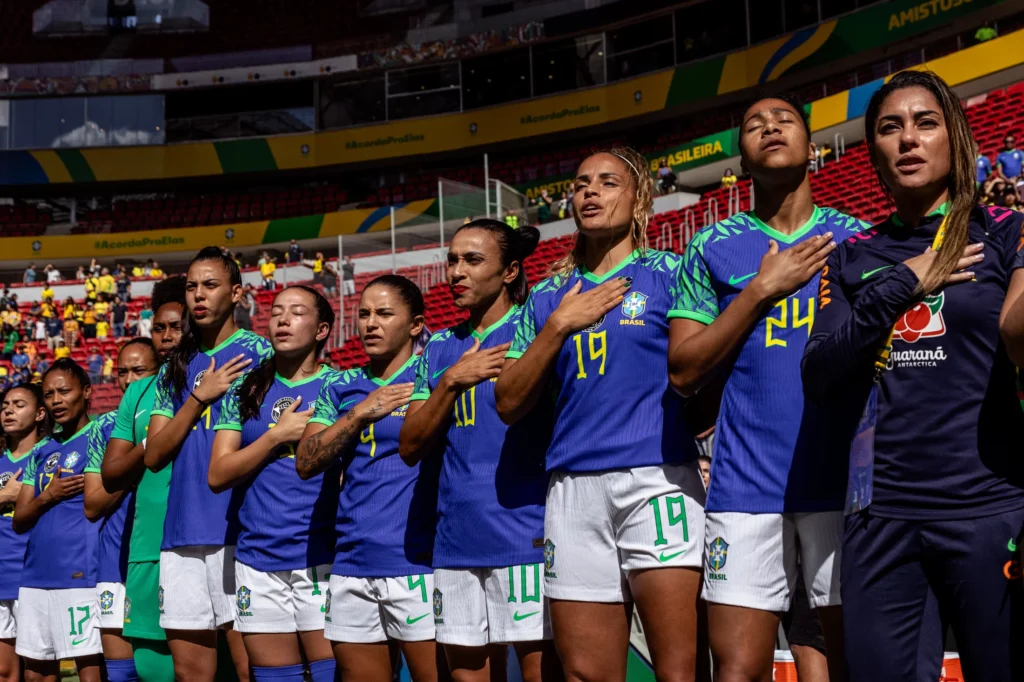In a landmark decision, Brazil has been selected to host the 2027 Women’s World Cup, outpacing a joint bid from Belgium, the Netherlands, and Germany (BNG). This marks the first time the Women’s World Cup will be held in South America, with Brazil emerging victorious in an open vote at FIFA’s congress in Bangkok on Friday (17), where they received 119 votes to BNG’s 78.
Both bids satisfied FIFA’s hosting criteria, but Brazil scored higher on technical aspects, including stadiums, accommodation, fan zones, and transportation, according to a FIFA bid evaluation report. FIFA President Gianni Infantino extended his congratulations to Brazil, stating, “We will have the best World Cup in Brazil”.
The decision follows the withdrawal of a joint bid from the United States and Mexico in April, and a similar move by South Africa in November. Both countries cited intentions to focus on the 2031 tournament instead.
Brazil’s victory is particularly significant given its historical context. Women’s soccer was banned in the country from 1941 to 1979, and it wasn’t until 2007 that the first women’s soccer league was established. Despite these setbacks, Brazil has become synonymous with soccer, although the women’s game still lags behind the men’s in terms of prominence.

Ednaldo Rodrigues, president of the Brazilian Football Confederation, expressed his enthusiasm, stating, “We knew we would be celebrating a victory for South American women’s soccer and for women. You can be sure, with no vanity, we will accomplish the best World Cup for women.” Valesca Araujo, the operational manager of Brazil’s bid team, added, “We are working on a transformation, not only for the country but for the continent.”
Brazil previously hosted the men’s World Cup in 1950 and 2014. The 2027 Women’s World Cup will follow the same 32-team format as the 2023 edition in Australia and New Zealand, where Spain emerged victorious over England in the final. Previous hosts of the Women’s World Cup include China, Sweden, the United States, Germany, Canada, and France.
The upcoming 2027 Women’s World Cup is seen as a crucial opportunity to further the development of women’s soccer. The 2023 tournament set new records for attendance and viewership, and generated $570 million in revenue, highlighting the economic potential of the sport.
In Brazil, the 2023 Women’s World Cup saw 11 million viewers tune in for the team’s opening match against Panama. Despite these promising signs, there is still room for growth in investment, media coverage, and attendance within the country.
Brazil’s women’s national team has seen significant success, including being runners-up in the 2007 Women’s World Cup and earning silver medals at the 2004 and 2008 Olympics. Marta, one of the sport’s greatest players, has been a vocal advocate for women’s soccer and remains an inspirational figure.
FIFA’s selection of Brazil as the 2027 Women’s World Cup host reflects a recognition of South America’s potential to rapidly develop women’s soccer, presenting an opportunity to fast-track the game’s growth in the region.




